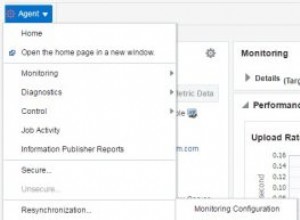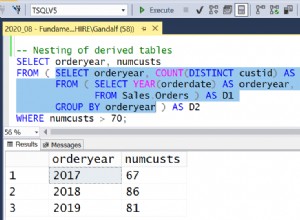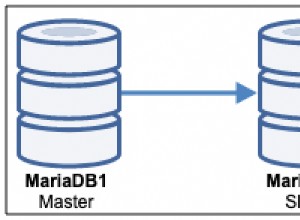En lugar de filtrar por un ID de usuario exacto, debe verificar si el usuario está relacionado con el problema, así:
select
t.title,
group_concat(
case when tu.type = 1 then
concat(u.firstname, ' ', u.lastname)
end) as creator,
t.priority,
t.date,
group_concat(
case when tu.type = 2 then
concat(u.firstname, ' ', u.lastname)
end SEPARATOR ' - ') as users
from
tickets t
inner join tickets_users tu on tu.ticketid = t.id
inner join users u on u.id = tu.userid
where
exists (
select
'x'
from
tickets_users tu2
where
tu2.ticketid = t.id and
tu2.userid = <youruserid> and
tu2.type = 1)
group by
t.id;
Para <youruserid> puede completar la identificación de usuario que desee. Esta consulta devolverá todos los problemas informados por ese usuario (tipo =1). Pero para todos esos problemas, aún se devuelven todos los usuarios relacionados, por lo que el resultado de su consulta aún está completo.




